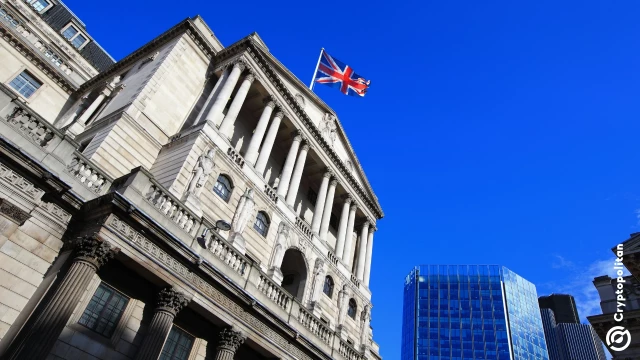
New Bank of England (BoE) stablecoin regulation proposal sets £20K holding limit
Cryptopolitangeneral
The Bank of England(BoE) has published a consultation paper outlining rules for systemic sterling-denominated stablecoins.
📋 Article Summary
The Bank of England's (BoE) Proposed Stablecoin Regulations: Navigating the New Landscape
In a move that has sent shockwaves through the cryptocurrency industry, the Bank of England has unveiled a consultation paper outlining a comprehensive regulatory framework for systemic sterling-denominated stablecoins. This proposal, which aims to address the growing prominence of these digital assets, has sparked significant debate and concern among industry stakeholders.
At the heart of the BoE's plan is a proposed £20,000 holding limit for individual stablecoin users. This cap, designed to mitigate the risks associated with large-scale stablecoin holdings, represents a significant departure from the current market landscape, where such restrictions have been largely absent.
The implications of this proposal are far-reaching, as it signals a shift in the regulatory approach to the stablecoin ecosystem. Experts have expressed concerns that the £20,000 limit may hamper the mainstream adoption of these digital assets, potentially limiting their utility and appeal to institutional and retail investors alike.
"This move by the Bank of England is a clear indication that policymakers are taking the risks associated with stablecoins very seriously," said Olivia Harding, a cryptocurrency market analyst. "While the intention may be to ensure financial stability, the proposed holding limit could have unintended consequences, potentially stifling innovation and hindering the growth of the broader cryptocurrency market."
The BoE's consultation paper also addresses other crucial aspects of stablecoin regulation, including requirements for issuers to maintain high-quality liquid assets and to have robust risk management frameworks in place. These measures are designed to enhance the resilience and reliability of the stablecoin ecosystem, mitigating the risks of potential bank runs or other systemic shocks.
However, some industry experts have raised concerns about the potential impact of these regulations on the competitiveness of the UK's cryptocurrency sector. "There's a delicate balance to be struck between ensuring financial stability and fostering innovation," said James Westwood, a fintech policy advisor. "The BoE will need to carefully consider the feedback from this consultation to avoid inadvertently stifling the growth of the crypto industry in the UK."
Looking ahead, the cryptocurrency community will be closely monitoring the BoE's next steps and the final shape of the stablecoin regulatory framework. As the global regulatory landscape continues to evolve, the BoE's approach is likely to have ripple effects throughout the industry, influencing the strategies and operations of stablecoin issuers, crypto-asset service providers, and investors alike.
In conclusion, the BoE's proposed stablecoin regulations represent a significant milestone in the ongoing efforts to bring greater oversight and stability to the cryptocurrency ecosystem. While the £20,000 holding limit has raised concerns, the broader regulatory framework aims to strike a balance between mitigating risks and fostering innovation. As the industry navigates this new landscape, adaptability and collaboration between policymakers and market participants will be crucial in shaping the future of stablecoins and the broader crypto landscape.